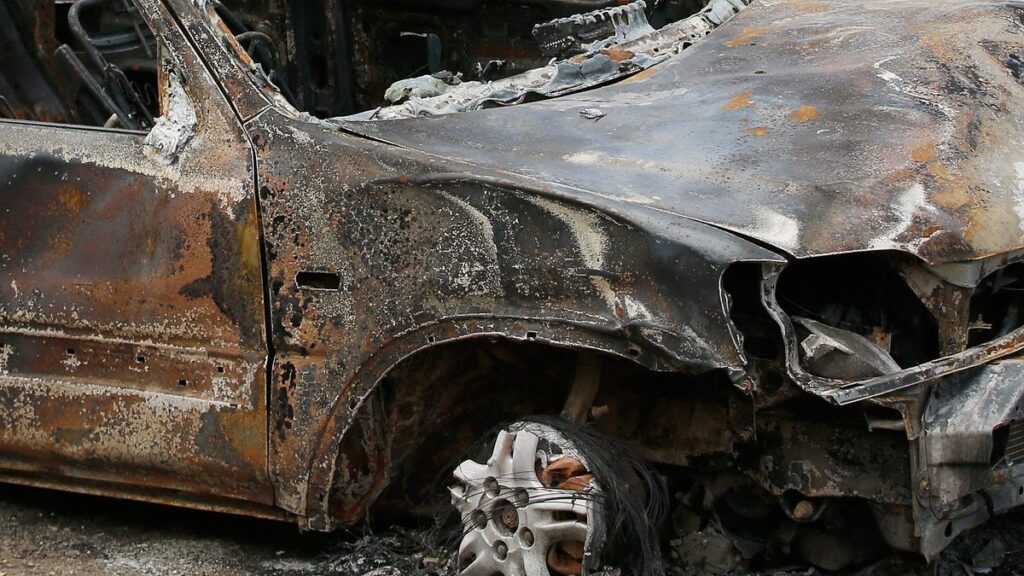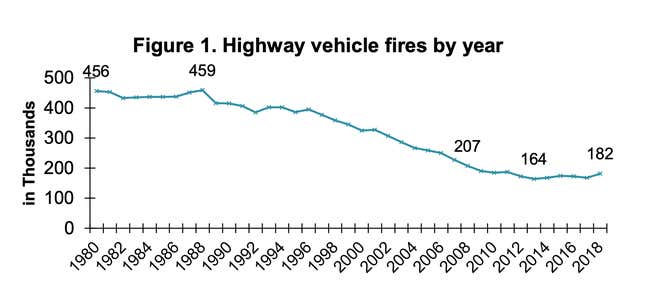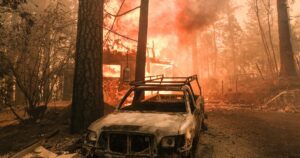It May Not Feel Like It To You, But Vehicle Fires Have Been on the Decline For 40 Years

Image: Darrian Traynor (Getty Images)
It seems as if the last few years have seen most major automakers issue at least one recall over fire risk. It seems like we hear about cars catching fire all the time. So, I looked it up and the data I found says that’s not the case.
Outdated Air Traffic Technology Is Plaguing Your Travel
As it turns out, a lot of what has created this feeling of everything being on fire all the time is seemingly constant news of recalls from automakers over vehicle fire risks: a quarter million Subaru Ascents here, 1.4 million BMWs there, 200,000 Ford SUVs. The recalls go on and on. Hyundai/Kia has what’s most likely the largest fire risk recall. Data from the Center for Auto Safety shows that since 2015, the Korean automakers have issued over 30 recalls related to engine fires since 2015. Spanning 20 different models from 2006-2021, the recalls affected 8.4 million vehicles.
But actual fires? Still in decline, according to the National Fire Protection Association.

Screenshot: National Fire Protection Association
In fact, the association’s data shows vehicle fires were 60 percent lower in 2018 than they were in 1980.
Fewer than 200,000 such fires were reported annually in the past decade. In 2018, an estimated 181,500 highway vehicle fires caused 490 deaths; 1,300 injuries; and $1.4 billion in direct property damage
A decade prior in 2008, annual vehicle fires were 207,000. That’s a decline of over 25,000.
So what can we take from all of this? Automakers still have work to do—ideally the fires would stop. But despite millions of vehicles being affected by recalls, the decline of vehicle fires means that the recalls are doing what they’re supposed to: motivating people to bring in their vehicles for repairs before a terrible accident can happen.






